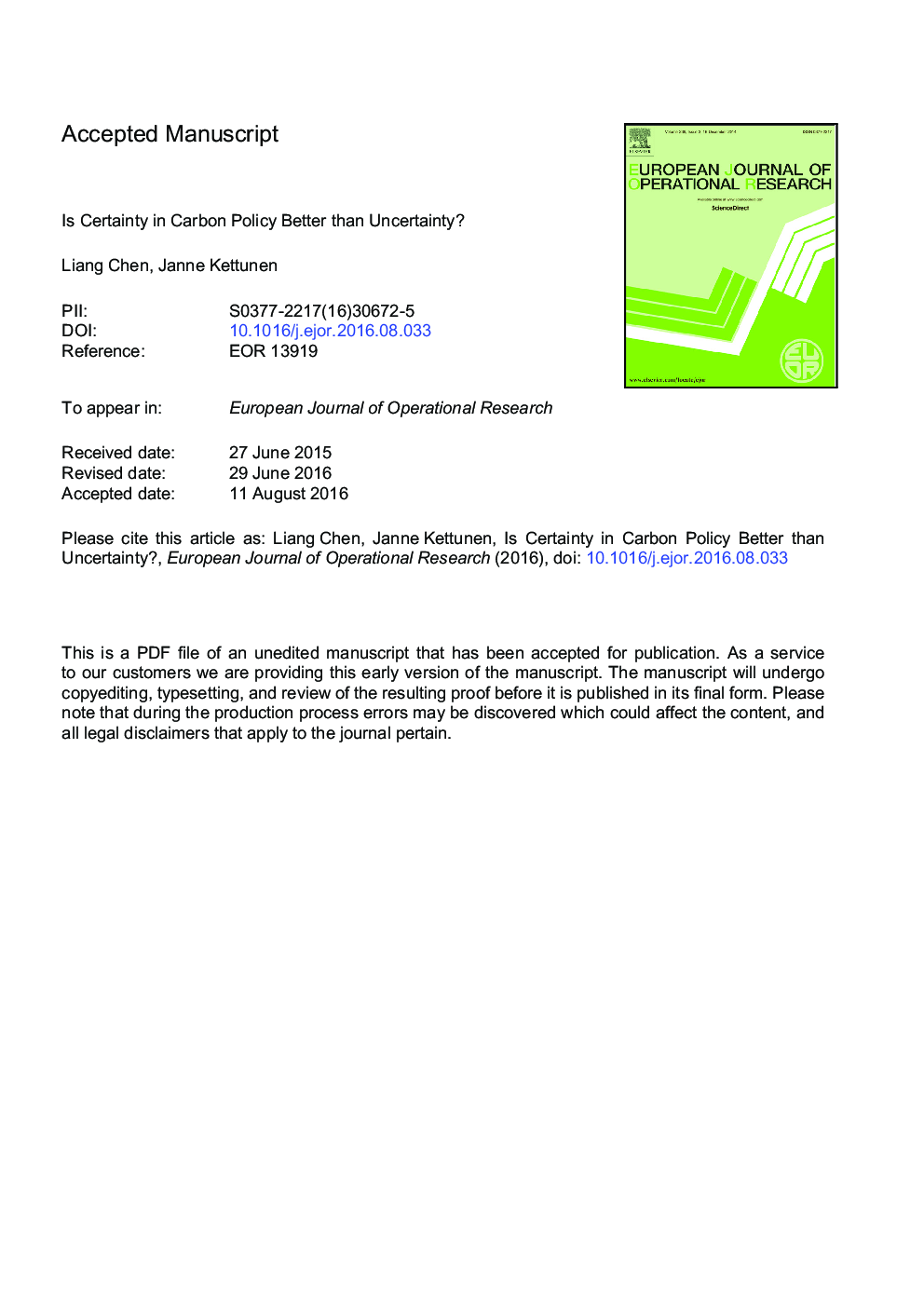| Article ID | Journal | Published Year | Pages | File Type |
|---|---|---|---|---|
| 4959964 | European Journal of Operational Research | 2017 | 40 Pages |
Abstract
Uncertainty in the strictness of carbon policy can have significant impacts on power generating firms' capacity investment decisions and market outcomes. We investigate the effects of this policy uncertainty on firms' expected profits, consumers' surplus, and firms' cost for reaching a CO2 emission target. Our results, derived from a game-theoretical model, and applied to realistic data, indicate that uncertainty in the carbon policy induces more capacity investments in fossil and renewable technologies. We find that it is optimal for firms with higher risk aversion to invest more in renewable technologies than their less risk-averse rivals. For policy makers, our results suggest counter-intuitively that retaining the flexibility to update emission targets, whilst causing uncertainty in the carbon policy, is beneficial. This is because it provides higher expected consumer surplus and lower expected electricity price. Power generating firms are also better off under the policy uncertainty by having lower expected costs for reaching the emission goal and higher expected profits when firms' risk-aversions are low. These results support the approach, employed in European power markets, to periodically update the CO2 emission cap depending on the prevailing circumstances, rather than having certainty in the decrements of the caps over a longer time horizon. Our insights can help policy makers and firms to make better decisions by understanding how carbon policy uncertainty impacts the optimal capacity investments and how these investments might depend on the firms' heterogeneity in risk aversion.
Related Topics
Physical Sciences and Engineering
Computer Science
Computer Science (General)
Authors
Chen Liang, Janne Kettunen,
